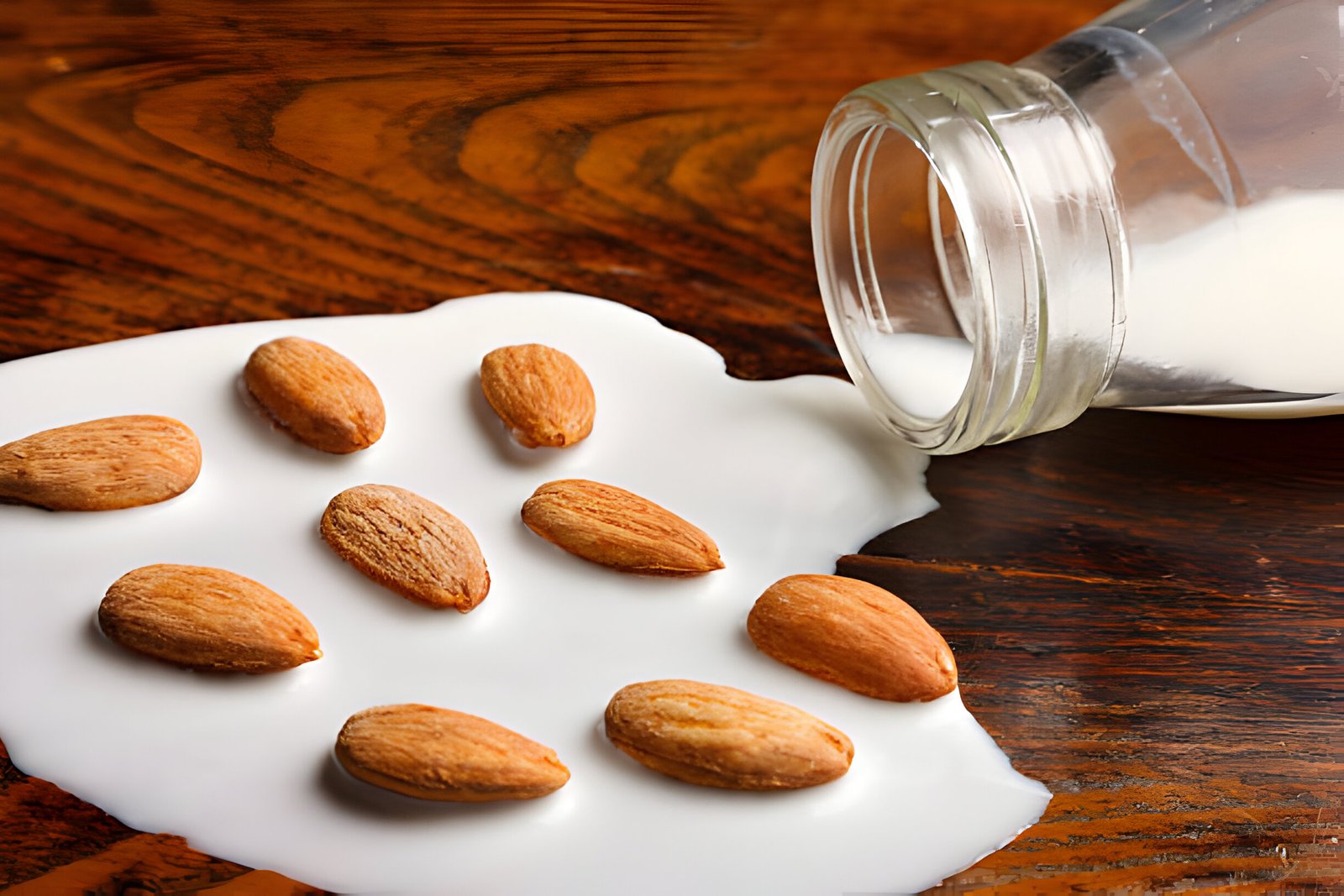
Image Credits: Getty images
With the rising popularity of non-dairy alternatives, many find themselves asking, “Does almond milk go bad?” Understanding the shelf life and storage requirements of almond milk is crucial for both health and economic reasons. Almond milk, celebrated for its nutritional benefits and versatility, can indeed spoil, much like its dairy counterparts. This becomes especially pertinent as consumers increasingly opt for plant-based milk options without fully understanding their preservation needs. Addressing these concerns is essential to making the most of almond milk’s advantages while avoiding waste and ensuring safety.
This article will explore the key aspects surrounding the freshness and maintenance of almond milk, answering common queries such as “How long does almond milk last once opened?”, “Does almond milk expire?”, and “Can almond milk go bad if left out?” Additionally, it will delve into recognizing the signs that indicate when almond milk goes bad and offer the best practices for storing almond milk to maximize its shelf life. Understanding these factors plays a pivotal role in enjoying almond milk at its best quality and ensuring it remains a safe, enjoyable part of your diet.
How Long Does Almond Milk Last?
Almond milk’s shelf life varies based on its type and storage conditions. Store-Bought Almond Milk generally lasts 7 to 10 days after opening when refrigerated. Ultra-pasteurization, a process involving high temperatures, extends this type’s longevity by eliminating bacteria. Homemade Almond Milk, lacking preservatives, typically remains fresh for 3 to 5 days in the fridge. It’s crucial to use sterilized equipment and store it in airtight containers to prevent spoilage. Shelf-Stable Almond Milk offers the longest shelf life, staying good for 1 to 2 months unopened. Once opened, it should be consumed within 7 to 10 days, ensuring it’s refrigerated immediately after opening.
Signs of Spoiled Almond Milk
Visual Indicators
First, inspect the packaging of the almond milk; swelling or puffing can indicate spoilage. Upon examining the milk itself, look for any black spots or mold, which clearly suggest it’s time to discard the product. If the almond milk appears unusually thick or clumpy, even after shaking, it’s likely spoiled.
Smell Test
Fresh almond milk should have a slightly nutty and sweet aroma. If the milk emits a sour or otherwise unpleasant odor, it’s an indicator that the milk has gone bad and should not be consumed.
Texture and Consistency
The consistency of almond milk should be similar to that of cow’s milk. If the milk has separated, a simple shake might restore its original texture. However, if it remains chunky or slimy after shaking, this is a sign of spoilage and the milk should be thrown away.
Video Credits: YouTube
Best Practices for Storing Almond Milk
To optimize the shelf life of almond milk and maintain its quality, adhere to these best practices
:
Refrigeration Tips
Always store almond milk in the back of the refrigerator where temperatures remain most stable. Minimize exposure to air by sealing the container tightly after each use. If almond milk is left out, such as during a brunch, ensure it’s not outside the fridge for more than two hours.
Freezing Almond Milk
Almond milk can be frozen to extend its usability. Freeze in ice cube trays or airtight containers for up to six months. Thaw in the refrigerator or use directly in cooking.
Avoiding Contamination
Use sterile containers for storage to prevent bacterial growth. Avoid using the same utensils for different food items without proper cleaning. Keep the almond milk container closed when not in use to reduce the risk of contamination.
Conclusion
Throughout this exploration of almond milk’s shelf life and proper storage techniques, we’ve addressed questions many consumers have about their favorite non-dairy milk alternative. We’ve discovered that the longevity of almond milk, whether store-bought, homemade, or shelf-stable, significantly depends on the conditions under which it is stored. By recognizing the visual, olfactory, and textural signs of spoilage, consumers can ensure they enjoy almond milk safely, maintaining its quality and nutritious benefits. Adhering to the best practices for storage—such as refrigeration, avoiding contamination, and, when necessary, freezing—plays a pivotal role in prolonging its usable life.
The implications of understanding how to properly check for and prevent the spoilage of almond milk extend beyond just preventing waste or avoiding an unpleasant taste. It’s about ensuring the daily choices we make towards healthier, sustainable alternatives are both safe and economically viable. As the preference for plant-based milk continues to grow, so does the importance of being informed about how to maintain its freshness. Moving forward, incorporating these practices into our routines will not only enhance our almond milk experience but also encourage a more sustainable and food-safe lifestyle overall.
FAQs
1. How can you tell if almond milk has gone bad?
To determine if almond milk is spoiled, first shake the container as it may have separated. If the texture remains thick and clumpy after shaking, it should be discarded. Additionally, smell the almond milk; it should have a mildly sweet and subtly nutty aroma. Any off or sour smell indicates spoilage.
2. Is refrigeration necessary for almond milk?
Yes, almond milk needs to be refrigerated. Once opened and exposed to air, it should be consumed within approximately 10 days. Almond milk purchased from the refrigerated section should always be kept in the fridge.
3. What are some tips to extend the shelf life of almond milk?
To extend its shelf life, store homemade or opened almond milk in an airtight container in the refrigerator for up to 5 days. For longer storage, almond milk can be frozen for up to 3 months. You may also enhance the flavor by adding vanilla, maple syrup, or a pinch of sea salt before storing.
4. Can almond milk spoil if left unrefrigerated?
Yes, almond milk can go bad if left out on the counter. Although it is less prone to bacterial spoilage due to high-temperature processing compared to dairy milk, leaving it at room temperature can accelerate enzymatic processes leading to spoilage.









